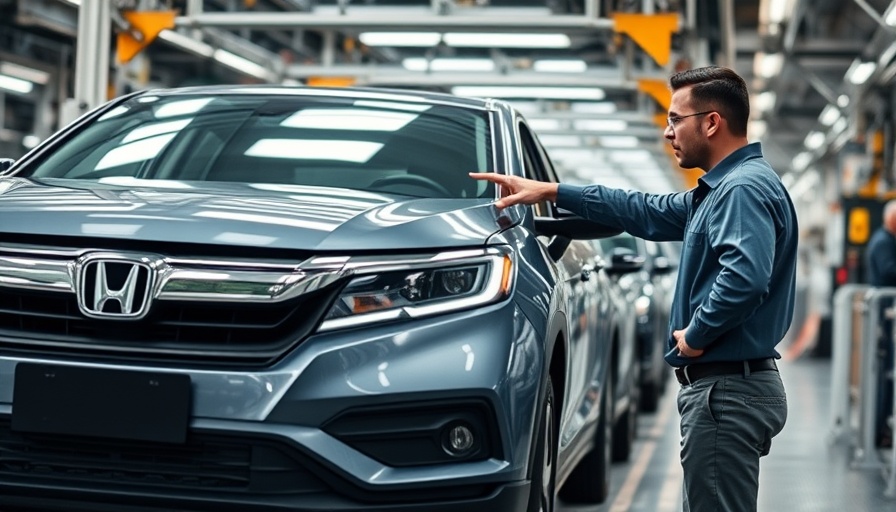
Why You Should Think Twice Before Buying Nissan and Honda Vehicles
As car enthusiasts, we often rely on brand loyalty and reputation when deciding on our next vehicle. However, recent news regarding Nissan and Honda raises serious concerns about their engine reliability. With numerous reports of engine malfunctions and ongoing investigations, it's time to reconsider the purchase of these popular brands.
In 'Stop Buying Hondas and Nissans (Major Engine Problems),' the discussion dives into critical engine reliability issues, prompting us to further analyze the implications for prospective car buyers.
The Unfolding Nissan Engine Drama
Nissan is back in the spotlight for all the wrong reasons, primarily due to issues with their innovative yet problematic VC turbo engine – a design that incorporates variable compression ratios. Marketed as a leap forward in efficiency and power, this engine has given owners nothing but headaches, including symptoms such as stalling, loss of power, and unsettling noises. The complexity of this engine, instead of delivering enhanced performance, has led to frequent breakdowns and has sparked legal action against the company. Feedback from owners highlights a disturbing pattern: repairs fail to rectify the underlying mechanical flaws.
Honda’s Rising Troubles
Meanwhile, Honda isn’t exempt from scrutiny either. The company is currently under investigation due to issues relating to their 3.5L V6 engines found in several models, including the popular Acura MDX and Honda Pilot. These engines are experiencing significant failures in their connecting rods, which could potentially lead to catastrophic engine failure, crashes, and even fires. The lack of effective remedies from Honda only exacerbates owner concerns, as many are left with unreliable vehicles and insufficient support from the manufacturer.
What Drives These Engine Issues?
The recurrence of these engine problems from two major automobile manufacturers appears to stem from their rush to innovate without proper durability testing. With Nissan's VC engine and Honda's connecting rod failures, both brands highlight the risks associated with prioritizing technological advances over automotive reliability. Many customers who have invested in these vehicles now face skyrocketing repair costs or complete engine replacements. In the end, what was touted as cutting-edge technology becomes a nightmare for the consumer.
Deciding on Your Next Vehicle: Information Saves Money
For potential buyers, the key takeaway here is to assess whether brand reputation truly reflects reliability in today’s market. While Nissan and Honda historically produced dependable vehicles, recent developments suggest that trust in these brands may be misplaced. Evaluating newer models thoroughly and keeping abreast of reports and recalls can potentially save car buyers from making costly mistakes.
Navigating the car market can be complex, but arming yourself with information is crucial. Always consult consumer reports, expert reviews, and owner feedback before making a significant financial commitment. Remember, a car is not just a mode of transport; it is an investment in your peace of mind.
By staying informed, you ensure that the vehicle you choose meets not only your needs but also stands the test of time without undue financial strain. If you're currently in the market or considering upgrades for your vehicle, take these insights into account before making your final decision.
 Add Row
Add Row  Add
Add 




Write A Comment